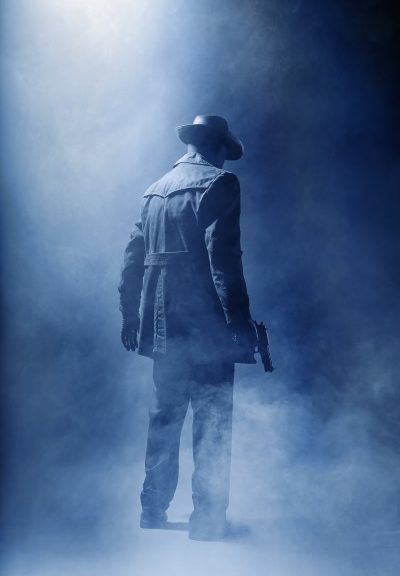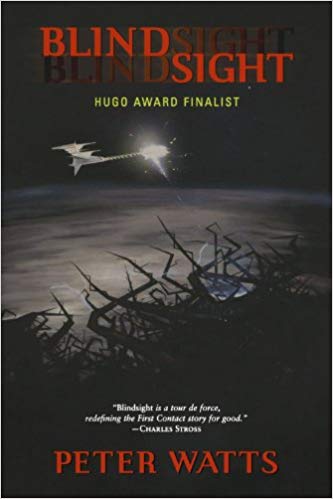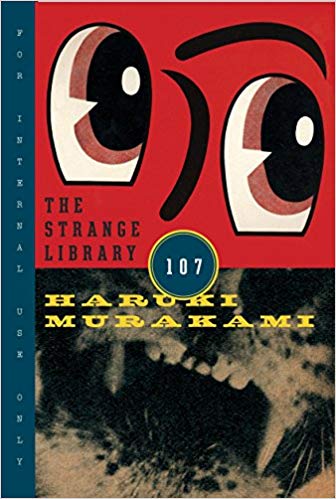
February 2019’s Reads
February's reading was slim, much like the month itself. I did read a few really great novels and some excellent short stories, so let's dive right in.
I finally (!) finished reading the January/February 2016 issue of Alfred Hitchcock Mystery Magazine. Yes, it took me around three years to finish it, mostly because I kept setting it aside and forgetting about it, or getting distracted by other stories.
I used to spend a ton of time with my grandmothers. Some of my favorite memories are picking new books off their shelves and reading for hours on end. My paternal grandmother, Nanny, loved the Ellery Queen Mystery Magazine, and I used to read her copies on a regular basis. I still remember some of the stories, too, and most were read at least thirty to thirty-five years ago.
Yet most days, I can't remember what I had for supper the previous evening. Eh. Go figure.
Anyway, I also used to read Hitchcock anthologies I found in the local public library. Way back in 2016, during one of my many trips to a bookstore, I spotted the latest issue of Alfred Hitchcock Mystery Magazine and got so nostalgic, I snagged a copy.
This double issue contains a ton of awesome stories. Some were real stand-outs.
In "Smothered Mate" by Steve Liskow, the cold war is fought by proxy in a game of chess, with deadly consequences.
"Inquiry and Assistance" by Terrie Farley Moran is set during the Great Depression and has all the great hallmarks of Noir.
In "Incident on Clinton Street" by Joseph Goodrich, a mysterious burglary leads to an inaccurate accusation, which snowballs into something quite tragic.
"The Dark Side of the Moon" by Eve Fisher is delightfully Lovecraftian.
"The Therapist" by Paul Lees-Haley involves a cat-and-mouse game between a therapist and his secretive patient.
Those are the highlights, but honestly, the whole issue was solid.
Blindsight by Peter Watts is both Hard Science Fiction with a strong element of Horror infused into its core and a deeply philosophical discussion of the nature of self and consciousness. Transhumanism was strongly contrasted against the alien nature of the (probably) extrasolar object at the center of the conflict, being explored by the crew of the Theseus.
However, the internal conflict of Siri, the narrator, is the focal point of the story. Ok, it was the underlying focal point that most people miss or simply gloss over because there are so many damn good ideas explored in Blindsight.
When Siri was young, half his brain was removed (for medical reasons). The aftermath left Siri perpetually disconnected from his emotional self. The story features flashbacks to scenes detailing relationships with his parents, his closest friend, and the one woman who really tried to connect with him, contrasted with the interrelationships of the Theseus's crew and Siri's observances thereof.
And you know what? I could talk about this all day, so let me boil it down to the big question: What does it mean to be human?
I could expand on that with half a million questions (How far can we go before we are no longer human? Is intelligence a product of consciousness, or consciousness a product of intelligence, or neither? And so on.), but that's the basic thrust of the story on several levels. On top of providing quite a bit of philosophical/intellectual fodder, Blindsight was incredibly well written. Yes, there's a lot of science-y stuff in here. Don't let that scare you. If you're going to read one modern Hard SciFi in your lifetime, this should be the one.
I discovered Christopher Moore's darkly humorous tales fairly recently, though I'd walked by them enough that I should've picked one up much sooner. I liked him so much that I put him on my must-read list and have been rationing myself so I don't run through his books too quickly.
Lamb: The Gospel According to Biff, Christ's Childhood Pal was an impulse read, picked up in an attempt to clear my head of all the deeply philosophical ponderings brought on by reading Blindsight. I thought it would be a lighthearted read, and in a lot of ways it was.
But not always.
At its heart, Lamb is the story of friendship, love, and family, like all good stories. Levi called Biff is Joshua's best friend, Joshua being the Hebrew name of the man we know as Jesus Christ. Together they embark upon a series of fantastic adventures, many of which can't possibly have happened, but who really knows. Moore worked incredibly hard to get the historical details as correct as possible and it shows, which makes the more implausible adventures seem, er, plausible.
Anyway, Lamb is hilarious as all get out, but it's also an incredibly touching story. If you pass it by because of a religious prejudice, you're really missing out on a fantastic (and thought-provoking) read.
Haruki Murakami is one of those writers everyone says everyone else should read. I've tried 1Q84 and had to put it down, not because it was bad, but because I borrowed it from the local library and couldn't finish it before it was due. It's really long. And when you're a single mother juggling multiple jobs while home schooling your son, you don't always have time to read a really long, complicated book.
I still wanted to try one of Murakami's stories, though, so when I was in the library the other day and happened to pass by the end of the "M" fiction on the way elsewhere, I picked up one of his shorter stories and took it home.
The Strange Library is a thin, heavily illustrated book. It's almost like Alice sliding down the rabbit hole: A young boy goes to the library to find something to read and is sent to the Reading Room, where he is held prisoner. Much like Alice, the boy escapes, but not without meeting his share of strange characters.
I had mixed feelings about this one. On the one hand, I appreciated the dream-like quality of what is most definitely Weird Fiction (and y'all know how I love my Weird Fiction). On the other hand, it was darkly bizarre and disturbing. Which is probably a good thing, or would be if I didn't live alone in a one hundred year old house.
I did attempt to read other stories in February, two in particular.
Gods of Howl Mountain by Taylor Brown is set in the mountains of western North Carolina sometime after the Korean War. Yes, I tried to read Southern Literature. I believe Gods is considered Southern Grit Lit, but I could be wrong. At any rate, the writing is beautiful and the characters were interesting, but that's about as far as it goes.
The problems I had with Gods were three-fold: The words overshadowed the story (meaning, Brown fixated on the words he used to tell the story rather than on crafting a great story); the characters were based on stereotypes; and it's historically inaccurate. Richard, my editor, told me later that Brown got many of the details about moonshining wrong, and Richard would know. His family's been moonshining for generations. Those weren't the only historical inaccuracies, however, but I'll let it rest there with the expert.
As to the stereotypes, that could've been avoided if Brown had taken the time to understand Appalachian culture prior to writing Gods. Most of his research, by his own words, seems to've come from living in Asheville for a couple of years and a few drives through the backwoods with a friend.
First off, Asheville is to Appalachia what Florida is to the South; the people living there are so far removed from the day-to-day lives of true mountain folk as to seem alien by comparison. Secondly, the only way to learn a culture is to steep yourself in it. If Brown had done so, he might've chosen to flesh his characters out in a different way, rather than falling back on stereotypes and assumptions. I could go into excruciating detail about this (and as a genealogist/historian and a native Appalachian, I have a ton of experience and research to draw from), but I'll have pity on you and leave it at that.
Gods could've been a tremendous story. The potential was there from word one. I was so disappointed by its failure to reach said potential that I may never pick up one of Brown's books again.
She Walks These Hills by Sharyn McCrumb is one of Richard's favorites by that author. The prologue was interesting (a ghost!), but I lost interest when the point of view shifted. I'm almost positive that lack of interest stemmed from sources other than the story, so I'll likely pick this one back up again at some point in the future and try again, especially since I'm interested in the story's Magical Realism aspects.
That's it for February!


